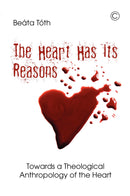Description
""The Heart Has Its Reasons" explores a hitherto neglected area of theological anthropology: the unity of human emotion and reason embodied in the Biblical concept of the heart. While the theological contours of human rationality have long been clearly drawn and presented as the exclusive seat of the image of God, affectivity has been relegated to a secondary position. With the reintegration of the body into recent philosophical and theological discourses, a number of questions have arisen: if the image (also) resides in the body, how does this change one's view of the theological significance of human affect? In what way is our likeness to God realised in the whole of what we are? Can one overcome the traditional dissociation between intellect and affect by a renewed theory of love? In conversation with patristic and medieval authors like Irenaeus, Tertullian, Gregory of Nyssa, Maximus, and Thomas Aquinas, and in dialogue with more recent interlocutors such as Blaise Pascal, Ricoeur, Marion, Milbank, and John Paul II, Beáta Tóth pursues a novel theological vision of the essential unity of our humanity.
Beáta Tóth (STD, PhD Literature, KU Leuven) is Chair of the Department of Systematic Theology at Sapientia College of Theology in Budapest.
“This book represents an important contribution to a Christian vision of affectivity - essential for understanding the human condition and our relationship with God. Through her study of such figures as Thomas Aquinas, Paul Ricoeur, Pope John Paul II, and Jean-Luc Marion, Toth has developed a 'Christian logic of affectivity' and the implications for theological anthropology. A timely study.” Declan Marmion, Professor of Systematic Theology, St. Patrick's College, Maynooth, Ireland.
“This is a deep, rich, and surprising theological anthropology. Employing the riches of the theological tradition, Tóth overcomes the centuries-old rupture between reason and affect by retrieving the biblical concept of the heart - life's 'innermost core' - and the 'median zone,' reuniting the sensible and the spiritual. With an intensity worthy of Pascal, she thus shows how embodied human life can still be considered the image of God and of God's immense love.” Anthony J. Godzieba, Professor of Theology & Religious Studies, Villanova University."
Beáta Tóth (STD, PhD Literature, KU Leuven) is Chair of the Department of Systematic Theology at Sapientia College of Theology in Budapest.
“This book represents an important contribution to a Christian vision of affectivity - essential for understanding the human condition and our relationship with God. Through her study of such figures as Thomas Aquinas, Paul Ricoeur, Pope John Paul II, and Jean-Luc Marion, Toth has developed a 'Christian logic of affectivity' and the implications for theological anthropology. A timely study.” Declan Marmion, Professor of Systematic Theology, St. Patrick's College, Maynooth, Ireland.
“This is a deep, rich, and surprising theological anthropology. Employing the riches of the theological tradition, Tóth overcomes the centuries-old rupture between reason and affect by retrieving the biblical concept of the heart - life's 'innermost core' - and the 'median zone,' reuniting the sensible and the spiritual. With an intensity worthy of Pascal, she thus shows how embodied human life can still be considered the image of God and of God's immense love.” Anthony J. Godzieba, Professor of Theology & Religious Studies, Villanova University."
Details
Publisher -
Language - English
Paperback
Contributors
Author
Beata Toth
Published Date -
ISBN - 9780227175873
Dimensions - 22.9 x 15.2 x 1.4 cm
Page Count - 267
Payment & Security
Your payment information is processed securely. We do not store credit card details nor have access to your credit card information.


